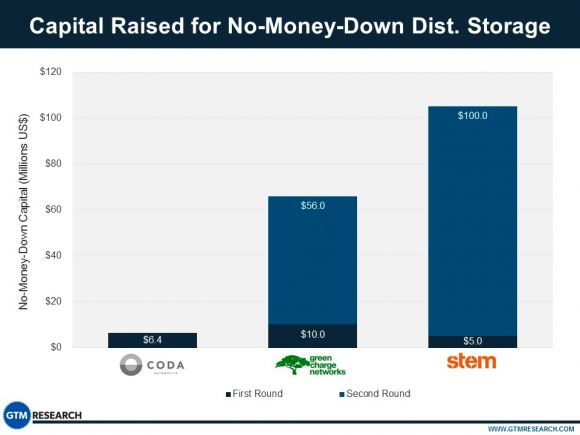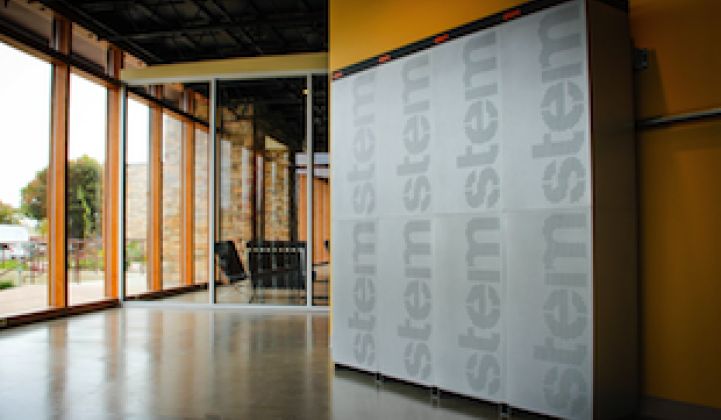Stem, the startup that’s installing nearly 100 megawatts of behind-the-meter batteries to manage the energy interplay of buildings and the power grid, has just closed a $27 million Series B round with a $12 million investment from some big strategic partners partners.
Constellation Technology Ventures (CTV), the venture arm of major U.S. utility Exelon Corp., and Total Energy Ventures, the venture arm of French oil giant Total, announced Wednesday that they will “partner in accelerating growth” for the Silicon Valley startup. That goes beyond the investment, which brings Stem’s total venture funding to date to about $37 million from investors including Angeleno Group and the venture arms of GE and Iberdrola.
Indeed, CTV chief Michael Smith said that Exelon, which acquired Constellation Energy in 2012, sees Stem as “among the leaders in this market” of batteries for energy management, adding that the firm “looks forward to taking an active role in facilitating Stem’s nationwide expansion.” Exelon and Constellation have a big portfolio of commercial and industrial buildings in terms of energy management and demand response, but haven't yet invested in energy storage, unlike rival energy giants such as Duke Energy or NRG.
Total, for its part, will help Stem “expand its reach with channel partners and several international opportunities,” according to Wednesday’s announcement. Stem has installed most of its closet-sized PowerStore battery and control systems in California, though it’s also expanding to Hawaii and other states. Total could open up interesting opportunities in Europe, where battery-backed solar systems are starting to take hold.
Wednesday’s investment stands apart from the $100 million and counting it’s lined up to finance its systems, offering a no-money-down option for building owners with limited capital budgets. Stem primarily works with building owners to reduce demand charges, but it’s also growing its share of utility business, including its 85-megawatt contract with Southern California Edison.
Stem has plenty of competitors in the behind-the-meter battery game, including Coda Energy, Green Charge Networks, and SolarCity and battery partner Tesla, to name a few. But it also stands out in terms of megawatts deployed and under contract -- and its new investors could open up big new markets for a technology that still requires state incentives in order to be cost-competitive.




